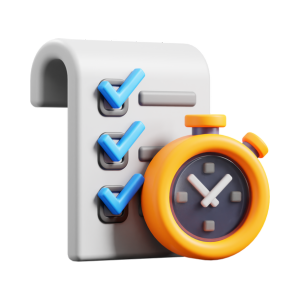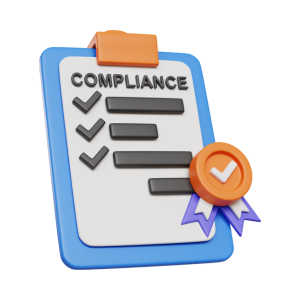
Things to Consider Before Filing Your Income Tax Return: A Complete Guide
Filing your income tax return (ITR) can seem like a daunting task, but it’s an essential step to comply with tax regulations and avoid penalties. Whether you’re a salaried individual, a business owner, or a freelancer, it’s important to understand the key considerations before submitting your ITR.
In this blog, we’ll cover everything you need to know before filing your taxes, ensuring you’re well-prepared and confident during the process.
1. Check Your Income Sources
The first thing to do before filing your return is to verify all sources of income. Income from multiple sources can complicate tax filing, but it’s important to include all of them.
Key income sources to consider:
- Salary/Salary Slips (Form 16)
- Freelance/Consulting Income
- Business Income
- Rental Income
- Interest Income (Bank and Fixed Deposits)
- Capital Gains from Investments
- Dividend Income
Having accurate and complete information about your income will prevent errors that could delay your tax return processing or even lead to penalties for underreporting.
2. Collect All Relevant Documents
You need a variety of documents to file your tax return. Missing or incomplete documentation can lead to incorrect filing and cause delays or audits. Here’s a checklist to help you prepare:
Essential documents:
- Form 16 (Issued by your employer)
- Form 26AS (Tax credit statement)
- Bank Statements
- Proof of Tax-Deductible Expenses (Home loan interest, education loan, etc.)
- Investment Proofs (Mutual funds, PPF, ELSS)
- Insurance Premium Receipts
- Rent Receipts for HRA Claims
- TDS Certificates from Other Sources
Make sure you gather all these documents in advance to avoid any last-minute rush.
3. Know Your Tax Deductions and Exemptions
Understanding the tax deductions and exemptions available to you can help reduce your taxable income, lowering your tax liability.
Common deductions to consider:
- Section 80C (Investments in PPF, EPF, life insurance premiums)
- Section 80D (Health insurance premiums)
- Section 80E (Education loan interest)
- Section 10(13A) (House Rent Allowance – HRA)
- Section 24(b) (Home loan interest)
Make sure you take full advantage of the deductions you’re eligible for. This can help you save significant amounts of money.
4. Review Your Tax Payments and TDS
It’s crucial to ensure that your tax payments and TDS (Tax Deducted at Source) are properly accounted for. You can cross-check your TDS records with Form 26AS, which is available on the Income Tax Department’s website.
This will help you avoid discrepancies between the taxes paid and what you owe, preventing any penalties or interest charges.
5. Verify Your Eligibility for Tax Slabs
The government provides different tax slabs based on income categories. Understanding which tax slab you fall under will help you calculate your tax liability correctly. Additionally, there are different tax schemes (old vs. new) with various benefits, so make sure to choose the one that works best for you.
6. Avoid Common Mistakes in Filing
Mistakes in tax filing can lead to penalties or delays in processing your return. Here are some common errors to avoid:
- Incorrect PAN or Aadhaar linking
- Wrong or missing bank account details
- Failure to report all sources of income
- Incorrect deductions or exemptions
- Not verifying your ITR before submission
Carefully review all your details before submission. It’s always advisable to double-check your return or even seek expert help to ensure everything is accurate.
7. Consider the Deadline
Filing your tax return before the deadline is critical to avoid penalties and interest charges. The due date for filing your return is typically July 31st of the assessment year, but it can vary depending on specific circumstances. Always file well in advance to ensure you don’t miss the deadline.
8. Claim Refunds If Applicable
If you’ve paid excess tax during the year (through TDS, advance tax, or self-assessment tax), you may be entitled to a tax refund. Filing your ITR is the only way to claim this refund. Ensure you’re accurately reporting your tax payments to receive any refund due.
9. Consider Professional Help
Filing taxes can be complex, especially if you have multiple sources of income, deductions, or exemptions. While you can file your return on your own, hiring a tax filing firm or a tax consultant can save you time and ensure accuracy.
A professional can:
- Help you maximize your deductions and exemptions
- Ensure compliance with the latest tax laws and regulations
- Guide you through the process if you have complex tax situations
- Handle any queries or follow-ups with the tax authorities
Conclusion
Tax filing is an essential task that requires careful attention to detail. By considering these key points before you file your return, you can ensure a smooth and accurate filing process. Whether you’re a first-time filer or a seasoned taxpayer, preparing early and staying organized will save you time, stress, and potentially money.
Need Help With Filing Your Tax Return?
Don’t risk errors or delays – trust the professionals at Tax India Firm to guide you through the entire process. We offer expert advice, personalized service, and ensure that your tax return is filed accurately and on time.
Contact us today to schedule a consultation and let us handle your tax filing with confidence!
Share:
More Posts

Why Chennai is the Perfect Hub for New Businesses (Startups) : A Comprehensive Guide
Chennai, often called the “Detroit of South Asia,” is rapidly becoming one of India’s most vibrant business hubs. With its strategic location, strong infrastructure, and business-friendly policies, the city offers ideal conditions for startups and small & medium enterprises (SMEs). Let’s explore why Chennai is the best place for new

Top 10 Things You Should Know About TDS Filing in India
Top 10 Things You Should Know About TDS Filing in India Tax Deducted at Source (TDS) is one of the most important aspects of the Indian tax system. It ensures that tax is collected at the source of income, minimizing tax evasion and ensuring steady government revenue. As a business

Why GST Registration is Essential for Your Business: A Detailed Guide for New Business Owners
Why GST Registration is Essential for Your Business: A Detailed Guide for New Business Owners Starting and growing a business requires you to meet various legal obligations, and one of the most crucial steps is registering for Goods and Services Tax (GST). Whether you’re running a small startup or a

Why Import and Export License is Essential for Your Business: A Detailed Guide
Why Import and Export License is Essential for Your Business: A Detailed Guide In today’s global economy, expanding your business beyond domestic borders can open up new opportunities and markets. However, to legally engage in international trade, having an Import and Export License is crucial. Whether you’re importing raw materials

Top 10 Things You Should Know About GST Filing in India
Top 10 Things You Should Know About GST Filing in India The Goods and Services Tax (GST) is a significant tax reform in India, simplifying the country’s complex tax structure by replacing multiple indirect taxes. GST filing can be confusing, especially for new businesses, but understanding the key aspects can








